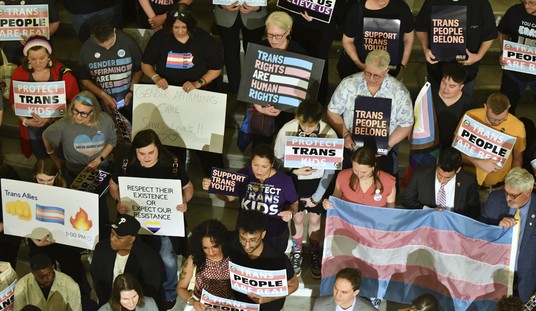At NewsReal, Michael Finch writes, “Barack Obama could salvage his sagging Presidency with one bold stroke:”
He would shore up his and America’s standing with our rightfully fretting and nervous allies. This would be his Kennedy, “Ich bein ein Berliner” and Reagan’s “Tear down this Wall” moment. And, most importantly, it would be the right thing to do.He needs to fly to Korea, now. Go to the DMZ, replete with all the glamour and pomp of a Presidential moment that he seems to so relish in, and not only tell the world, but critically send a message to the Koreans, Chinese and Japanese. However he wants to say it, he must state clearly that this border must disappear, that Korea should be reunited as a free nation and people and that the brutal regime of North Korea must fall to into the dustbin of history.
Those words and that speech, and the man can deliver a speech, would send shock waves through the region and the world. Would it cause the overnight fall of the North Korean regime? We can only hope and pray, but it would be the first ripple in a tsunami that will eventually bring freedom and liberty to all of Korea. Does Obama have it in him? Does he even care about a free Korea? I guess we will find out soon enough.
Would he do more than give that speech? Should he do more? It’s not a perfect comparison, but in the immediate aftermath of 9/11, Byron York looked back on Bill Clinton’s wasted decade as commander in chief while the dangers of Islamic terrorism became an increasing threat to America, bookended by a failed attack on the World Trade Center in 1993, and a horrifyingly completed second attempt eight years later.
I wonder if Obama is having a conversation with his advisors along these lines:
In early August 1996, a few weeks after the Khobar Towers bombing, Clinton had a long conversation with Dick Morris about his place in history. Morris divided presidents into four categories: first tier, second tier, third tier, and the rest. Twenty-two presidents who presided over uneventful administrations fell into the last category. Just five — Washington, Jefferson, Lincoln, Wilson, and Franklin Roosevelt — made Morris’s first tier.
Clinton asked Morris where he stood. “I said that at the moment he was at the top of the unrated category,” Morris recalls. Morris says he told the president that one surprising thing about the ratings was that a president’s standing had little to do with the performance of the economy during his time in office. “Yeah,” Clinton responded, “It has so much to do with whether you get re-elected or not, but history kind of forgets it.”
Clinton then asked, “What do I need to do to be first tier?” “I said, ‘You can’t,’“ Morris remembers. “‘You have to win a war.’“ Clinton then asked what he needed to do to make the second or third tier, and Morris outlined three goals. The first was successful welfare reform. The second was balancing the budget. And the third was an effective battle against terrorism. “I said the only one of the major goals he had not achieved was a war on terrorism,” Morris says. (This is not a recent recollection; Morris also described the conversation in his 1997 book, Behind the Oval Office.)
But Clinton never began, much less finished, a war on terrorism. Even though Morris’s polling showed the poll-sensitive president that the American people supported tough action, Clinton demurred. Why?
“He had almost an allergy to using people in uniform,” Morris explains. “He was terrified of incurring casualties; the lessons of Vietnam were ingrained far too deeply in him. He lacked a faith that it would work, and I think he was constantly fearful of reprisals.” But there was more to it than that. “On another level, I just don’t think it was his thing,” Morris says. “You could talk to him about income redistribution and he would talk to you for hours and hours. Talk to him about terrorism, and all you’d get was a series of grunts.”
And that is the key to understanding Bill Clinton’s handling of the terrorist threat that grew throughout his two terms in the White House: It just wasn’t his thing. Clinton was right when he said history might care little about the prosperity of his era. Now, as he tries to defend his record on terrorism, he appears to sense that he will be judged harshly on an issue that is far more important than the Nasdaq or 401(k) balances. He’s right about that, too.
Obama is at a similar junction in his presidency. How will he proceed? As Finch writes at NewsReal, one way or another, we will find out soon enough.










Join the conversation as a VIP Member